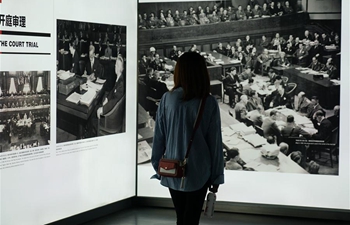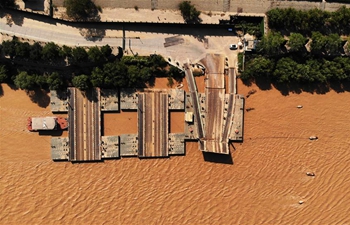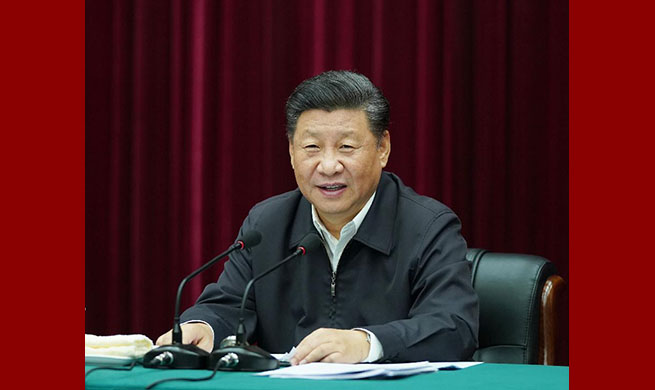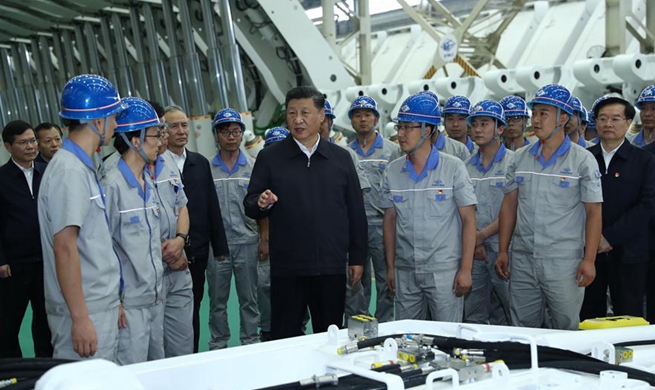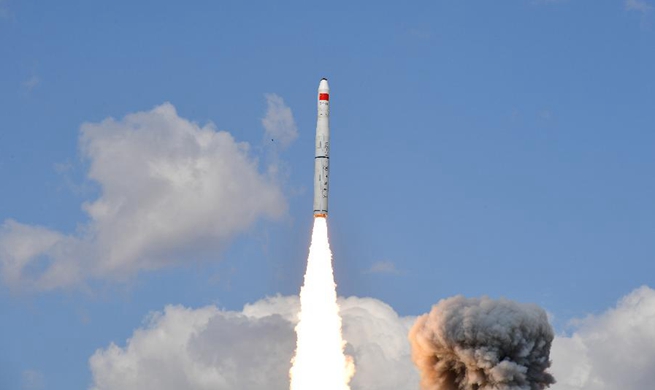WASHINGTON, Sept. 18 (Xinhua) -- U.S. President Donald Trump on Wednesday tapped Robert O'Brien, the State Department's chief hostage negotiator, as his fourth national security advisor, a choice experts say will likely bring the post back to its traditional coordinator role with Trump as the ultimate decider.
"I am pleased to announce that I will name Robert C. O'Brien, currently serving as the very successful Special Presidential Envoy for Hostage Affairs at the State Department, as our new National Security Advisor," Trump said in a morning tweet.
O'Brien will replace John Bolton, the third U.S. national security advisor during the Trump administration, who ended his tenure over a week ago, as his relationship with Trump frayed over policy differences.
O'Brien was a founding partner of a Los Angeles-based law firm before taking several government posts. He once worked with Bolton when the latter was the U.S. ambassador to the United Nations.
In both the Bush and Obama administrations, O'Brien worked on a project to train lawyers and judges in Afghanistan. He got his current post as the special presidential envoy for hostage affairs in May 2018. During the tenure, he managed to bring back Andrew Brunson, a pastor held by Turkey for two years, among others.
Experts see obvious differences between O'Brien and his predecessor. For Wayne White, former deputy director of the Middle East Intelligence Office of the State Department, O'Brien appears to be roughly "the opposite of Bolton."
"His impact on U.S. foreign policy should be a stabilizing element compared to the garrulous, demanding John Bolton," White told Xinhua.
Brett McGurk, who once served in the national security team led by Bolton, told National Public Radio that Trump's new choice may bring back the role a national security advisor is expected to play.
"John Bolton carried an agenda into the West Wing. Often, it contradicted the president's own agenda. And the policy process broke down, so it led to a lot of dysfunction," he said.
"With Robert, you'll be back to the more traditional coordinator, facilitator role," he added.
Choosing O'Brien, who has relatively limited influence in the foreign policy area, is also seen as a move that will give Secretary of State Mike Pompeo a bigger say in diplomatic and national security issues.
Elevating a relatively unknown figure appears to solidify Pompeo's role as the most influential foreign-policy figure within the administration, according to an article in the Foreign Policy magazine.
The first test for O'Brien after taking the new post may be Washington's ties with Iran, which has further sunk following Saturday's drone attacks on oil production facilities in eastern Saudi Arabia. Washington has been indicating that Iran was behind the attacks, a claim that was strongly denied by Tehran.
"Engagement with Iran might have been possible had there not been the recent attack on Saudi oil facilities, but in the near term there will likely be a hardening of policy," Troy Stangarone, senior director at the Korea Economic Institute, a Washington-based think-tank, told Xinhua.


